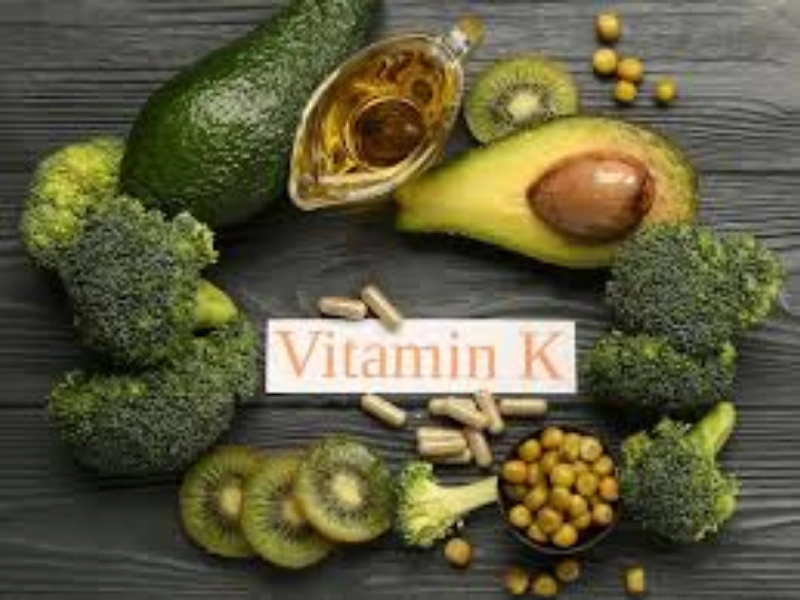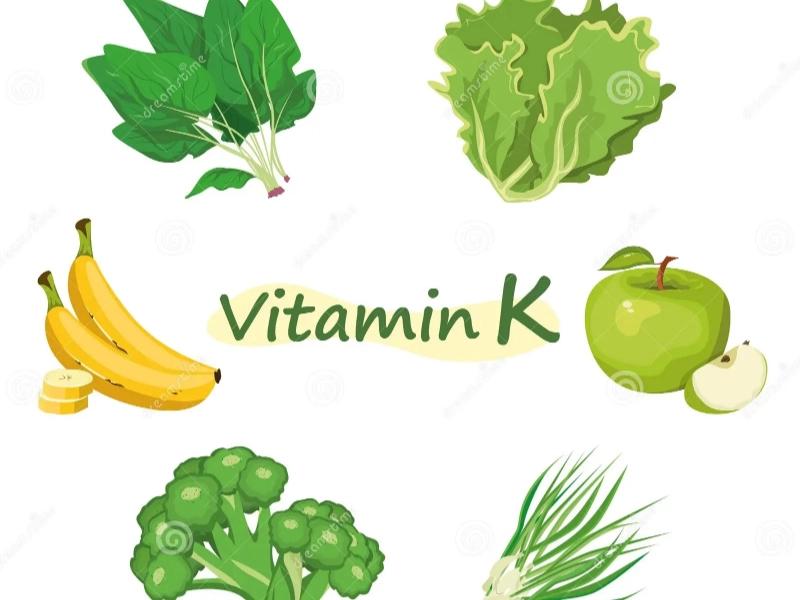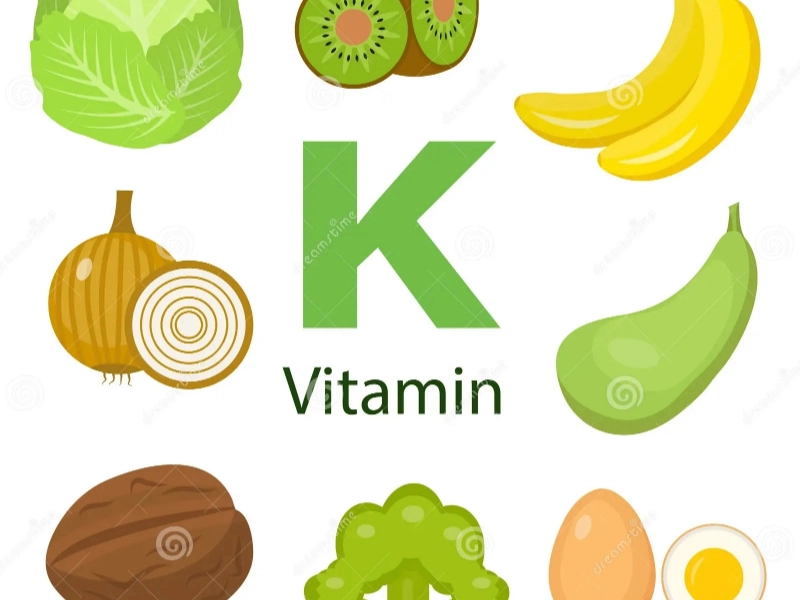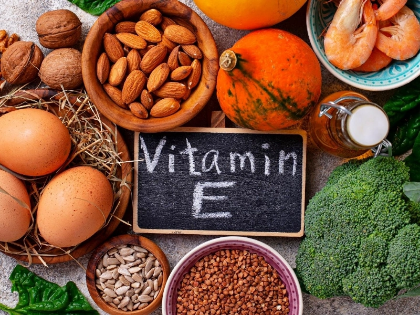Vitamin K-Assisted Natural Hormone Balancing
Vitamin K is a fat-soluble vitamin that is critical to bone metabolism and blood coagulation. Leafy green vegetables, fermented meals, and some animal products, such as butter and egg yolks, contain it. Studies indicate that specific vitamins, minerals, herbs, and supplements may help reduce the symptoms associated with hormone abnormalities. But always, having nutritious food and being in excellent health are the keys to hormone balance.
K1 vitamin

K2 vitamin
 A fat-soluble vitamin that helps support hormone balance is vitamin K2. It is necessary for the synthesis of insulin and the maintenance of cell sensitivity to it, both of which are necessary for stable blood sugar levels. It also turns off cancer genes and aids in the regulation of sex hormones. Meat, egg yolks, and fermented foods like natto are good sources of vitamin K2.
A high vitamin K2 intake has been linked to a lower risk of cardiovascular disease, according to studies. The reason for this is that vitamin K2 interacts with the nuclear receptor SXR, which is known to activate several genes linked to cardiac health.
By stimulating the protein osteocalcin, this vitamin also promotes bone health. This protein transports calcium to the bones where it is required by drawing it from the blood. Given their increased risk of bone loss, older persons should pay particular attention to this. Combining vitamin K2 with vitamin D3 is a smart move because both supplements support healthy bones in tandem.
A fat-soluble vitamin that helps support hormone balance is vitamin K2. It is necessary for the synthesis of insulin and the maintenance of cell sensitivity to it, both of which are necessary for stable blood sugar levels. It also turns off cancer genes and aids in the regulation of sex hormones. Meat, egg yolks, and fermented foods like natto are good sources of vitamin K2.
A high vitamin K2 intake has been linked to a lower risk of cardiovascular disease, according to studies. The reason for this is that vitamin K2 interacts with the nuclear receptor SXR, which is known to activate several genes linked to cardiac health.
By stimulating the protein osteocalcin, this vitamin also promotes bone health. This protein transports calcium to the bones where it is required by drawing it from the blood. Given their increased risk of bone loss, older persons should pay particular attention to this. Combining vitamin K2 with vitamin D3 is a smart move because both supplements support healthy bones in tandem.
Phylloquinone
 For the majority of people, the primary dietary source of vitamin K1 is the phylloquinone found in green leafy vegetables and vegetable oils. In cancer cell lines (Caco-2, HT-29) and those exhibiting hyperproliferation of the vascular endothelium, phylloquinone has been shown to elicit antiproliferative and apoptotic effects [1].
Reduced plasma concentrations of vitamin K1, or phylloquinone, have been linked to osteoarthritis, especially knee osteoarthritis, according to a number of observational studies. Nevertheless, randomised controlled trials are required to assess whether supplementing with long-chain menaquinones (MK-4 or MK-7), which the body metabolises from phylloquinone, may lower the incidence of osteoarthritis because observational studies are not able to draw conclusions about causality.
Depending on age and gender, different amounts of vitamin K are needed for a sufficient consumption. Adults are generally advised to consume 80 mg of vitamin K daily. Since 2015, this value has been increased to reflect the most recent assessment of a healthy intake amount. For elderly persons, there is a higher daily value for vitamin K.
For the majority of people, the primary dietary source of vitamin K1 is the phylloquinone found in green leafy vegetables and vegetable oils. In cancer cell lines (Caco-2, HT-29) and those exhibiting hyperproliferation of the vascular endothelium, phylloquinone has been shown to elicit antiproliferative and apoptotic effects [1].
Reduced plasma concentrations of vitamin K1, or phylloquinone, have been linked to osteoarthritis, especially knee osteoarthritis, according to a number of observational studies. Nevertheless, randomised controlled trials are required to assess whether supplementing with long-chain menaquinones (MK-4 or MK-7), which the body metabolises from phylloquinone, may lower the incidence of osteoarthritis because observational studies are not able to draw conclusions about causality.
Depending on age and gender, different amounts of vitamin K are needed for a sufficient consumption. Adults are generally advised to consume 80 mg of vitamin K daily. Since 2015, this value has been increased to reflect the most recent assessment of a healthy intake amount. For elderly persons, there is a higher daily value for vitamin K.
Biotin
 Vitamin B7, or biotin, is a water-soluble vitamin that aids in the body's energy production from fats, carbs, and proteins. It also promotes healthy nails and scalps as well as typical nervous system performance.
Though its most well-known application is in strengthening brittle nails and stimulating hair growth, it can also help control mood swings brought on by hormone abnormalities, such as those found in PCOS. For those who have diabetes, it's crucial because it may enhance glucose metabolism and maintain appropriate blood sugar levels.
If you take any of these or other medications, it's vital to consult your doctor before taking biotin, as it may interfere with some other nutritional supplements and anti-seizure medications. In certain lab tests, an overabundance of biotin might also yield false-positive results. If you are receiving treatment for a medical condition like diabetes or renal disease that necessitates frequent laboratory testing, this could be an issue.
Vitamin B7, or biotin, is a water-soluble vitamin that aids in the body's energy production from fats, carbs, and proteins. It also promotes healthy nails and scalps as well as typical nervous system performance.
Though its most well-known application is in strengthening brittle nails and stimulating hair growth, it can also help control mood swings brought on by hormone abnormalities, such as those found in PCOS. For those who have diabetes, it's crucial because it may enhance glucose metabolism and maintain appropriate blood sugar levels.
If you take any of these or other medications, it's vital to consult your doctor before taking biotin, as it may interfere with some other nutritional supplements and anti-seizure medications. In certain lab tests, an overabundance of biotin might also yield false-positive results. If you are receiving treatment for a medical condition like diabetes or renal disease that necessitates frequent laboratory testing, this could be an issue.








